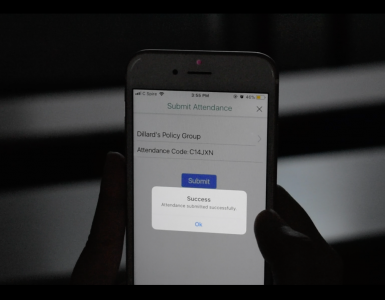We know college is expensive and with the living costs exponentially increasing every year saving money is no longer an option, but a MUST.
As the weight of tuition fees, textbooks, and daily expenses bear down, finding ways to cut costs becomes paramount. But fear not! Saving money as a college student doesn’t have to be hard. It takes a little discipline and creativity to get started.
We’ve compiled our top tried-and-true methods, drawing from the experiences of both current and former college students. So, whether you’re a freshman navigating your first semester or a seasoned senior looking to make your funds stretch, here are some ideas to help you save money.
- Create a Budget: Start by tracking your income and expenses. Make a realistic budget that outlines your monthly income and sets limits on different categories like food, entertainment, transportation, and school supplies. To get started, try out our budget template. Make sure you download the template and modify it as needed.
- Cook at Home: Eating out can quickly drain your finances. Try cooking your meals at home. It’s not only cheaper but also healthier.
- Attend after-school events: You’d be surprised, but most interest/welcome sessions and meetings will include snacks. The best part? You can meet people, learn a new hobby, and get involved on campus while enjoying a free meal.
- Use Student Discounts: Many places offer student discounts. Always carry your student ID, and ask if a discount is available whenever you make a purchase. Here are a few services and brands that offer student discounts:
- Buy Used Textbooks: Textbooks can be expensive. Look for used textbooks online, rent them, or consider digital versions when possible. Another great way to save money is by saving an all-inclusive program, like the First Day, First Day Complete, Inclusive Access, or Equitable Access program to save money. Most of these programs are covered by scholarships or financial aid.
- Share Expenses: Share living expenses with roommates to reduce rent and utility costs. Consider carpooling for transportation.
- Use Public Transportation: If available, use public transportation instead of owning a car. It’s often cheaper when you factor in the cost of gas, insurance, and maintenance.
- Take Advantage of Free Resources: Your college likely offers many free resources, such as gyms, libraries, and tutoring services. Utilize them.
- Shop Smart: Look for deals, use coupons, and buy generic brands. Also, consider shopping at thrift stores for clothing and household items.
- Participate in On-Campus Jobs: Look for part-time on-campus jobs that can provide income without the need for transportation.
- Limit Subscriptions: Review your monthly subscriptions (streaming services, magazines, etc.) and cancel those you don’t use often.
- Plan Ahead: Plan your meals, outings, and purchases in advance. This can help you avoid last-minute, more expensive choices.
College life doesn’t have to break the bank. With determination, smart choices, and the tips we’ve shared, you can take control of your finances while still enjoying your academic journey.
Remember, it’s not just about pinching pennies; it’s about making informed decisions that will set you on a path toward financial stability. Saving money in college isn’t always easy, but the rewards are well worth the effort. So, embrace these strategies, adapt them to your circumstances, and watch your savings grow as you thrive both academically and financially during your college years.




